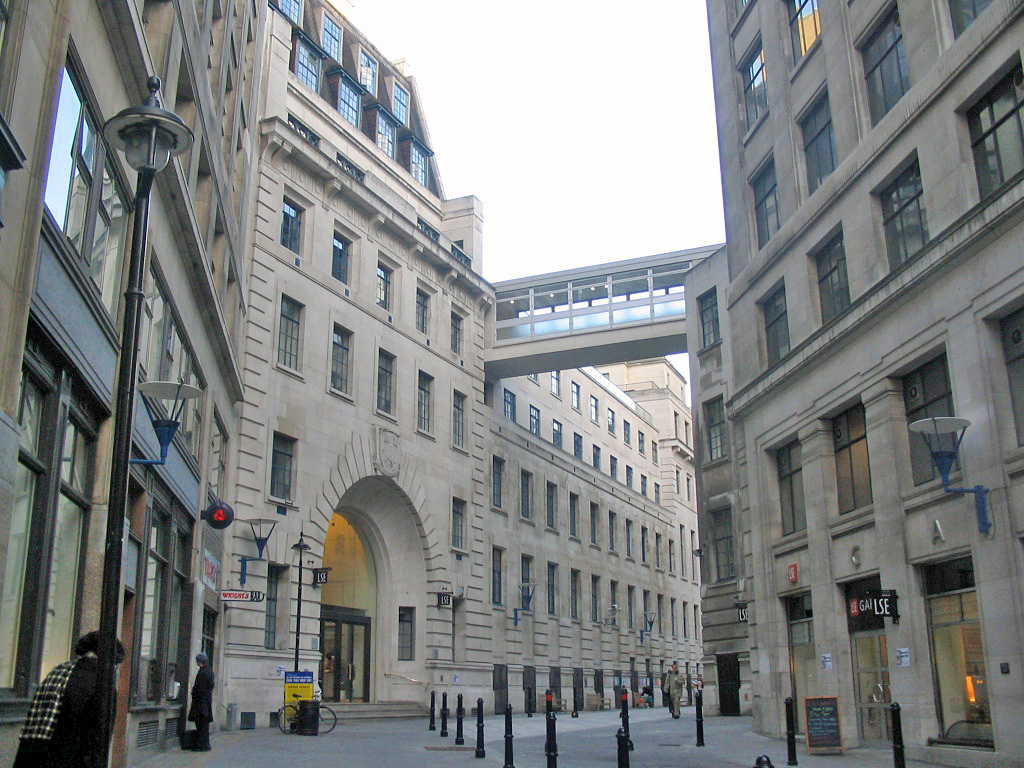London School of Economics and Political Science
LSE is situated in Westminster, central London, and is a constituent college of the University of London. REQUEST INFORMATION
KEY INFORMATION:
London is the capital city of Great Britain, and has a population of 8.3 million (or over 13 million in the wider metropolitan region). The major international airports London Heathrow and London Gatwick are an hour’s tube ride (Heathrow) or an hour’s rail journey (Gatwick) away.



UG 5330
PG 5030



Six steps to London School of Economics and Political Science
Our method to your success
FREE CONSULTATION MEETING
REPORT & INSTITUTION SHORTLIST
APPLY & RECEIVE AN OFFER
WOO HOO! YOUR OFFER IS ACCEPTED
ARRIVAL & POST ARRIVAL SUPPORT
WE ARE WITH YOU EVERY STEP OF THE WAY
LOCATION:
London is well served by the underground and bus system and its major rail and coach stations offer connections to the rest of the UK as well as to France and Brussels via the Eurostar train from London St Pancras station.The average lowest temperature in London is 3 degrees in January. The average highest temperature is 22.5 degrees in July.
REQUEST INFORMATION..

Request Information - University Courses
HISTORY:
London School of Economics was founded in 1895 by members of the socialist Fabian society, (including the playwright George Bernard Shaw) to procure the betterment of society through the study of economics especially of poverty. In 1900 LSE became the Faculty of Economics for London University and issued its first degrees in 1901. Over the decades its relationships and influence in business, politics and law has had a wide impact within British society. Whilst its reputation was originally for law, mathematics, economics, history and philosophy, the School has become known in more recent years for its teaching of business and the social sciences.
LOCATION:
LSE is a campus university – the main campus being the site at Westminster, off Aldwych and next to the Royal Courts of Justice and Temple Bar. All the halls of residence are well situated near to many of London’s attractions and facilities eg: Butlers Wharf hall is next to Tower Bridge, Rosebery Hall in Islington is near to the famous Sadlers Wells theatre, whilst Bankside hall on the south bank of the Thames is very near the Tate Modern art gallery. Travelling to and from campus is easy since London is well served by buses and tube running until the early hours of the morning.
RANKING:
LSE is ranked 27th in the Times Higher Education rankings. It is ranked between 151-200th in the Shanghai Jiao Tong Rankings. LSE is a member of the Russell Group of universities.LSE is ranked 53rd in the National Student Survey Satisfaction rankings.
INTERNATIONAL:
Latest figures show that there are currently over 5,900 international students studying at LSE, coming from 142 countries, and representing 55% of all students.
SIZE:
Latest figures indicate a total student population of just over 10,000, of which over 5,300 were undergraduates, and 5,030 were postgraduates.
EMPLOYMENT:
92.4% of LSE graduates enter directly into work, further study or training within 6 months of graduation (source:HESA). A breakdown of post graduation employment by course, showing the split into professional/managerial positions, rather than general employment figures, is available from Unistats an independent source of university data. For more information, please visit the REF Information page.
FACILITIES:
On its main Aldwych campus the LSE has a library, 2 pubs, a nursery school and the main teaching buildings. Around the corner on Sheffield Street, the new Saw Swee Hook Centre is home to a bar, café, media centre, dance studio, performance venue and gym. LSE also owns the Peacock Theatre in London’s west end. The Student Union supports 200 societies and 40 sports clubs as well as running tv and radio stations and the country’s oldest student newspaper.Its central location means that access is easy to all of London’s famous landmarks, museums, theatres, galleries, shopping, restaurants, clubs, bars and nightlife.
ACCOMMODATION:
LSE owns 12 halls of residence and has shares in eight further intercollegiate halls managed in partnership with constituent colleges of the University of London . This means that up to 4000 places are available for LSE students in 17 locations across the capital. These range from a 5 minute walk from the main Aldwych site (the Covent Garden hall), to a 30 minute journey by tube or bus (the Nutford and Butlers Wharf halls). All first years and most postgraduates are guaranteed accommodation in either catered or self catered halls. Contracts are for 31, 40 or 50 weeks depending on need. Some halls are specifically for undergraduates (and these are primarily the catered halls), whilst others are purely for postgraduates, and some are mixed.Accommodation costs are very varied depending on the site.The lowest price for a single room with shared bathroom and kitchen facilities is £239.41 per week.An example price for catered accommodation is £235.13 at Connaught Hall.
COST:
International undergraduate tuition fees:
Fees for full time undergraduate courses are all priced at £22,430.
SUBJECT AREAS:
REF (Research Excellence Framework) was an independent government review conducted into the quality of research at UK universities and published in December 2014. This information highlights subjects of specialism within each university. We have listed all subject areas where at least 60% of the research conducted in these specific fields has been graded 3 or 4 stars. (4 stars being the highest ranking REF award). For more information, please visit the REF Information page.
ONLINE COURSES:
Through the University of London, LSE offer Undergraduate Programmes in Economics, Management, Finance and the Social Sciences. A variety of BSc courses are available, including Economics, International Relations, Accounting and Finance, and Business and Management. They also offer a range of online certificate courses, and online Masterclasses.
LIFE AT London School of Economics and Political Science
We have been helping overseas students gain entrance to London School of Economics and Political Science for a number of years now, progressing to high profile careers in the UK. Find out more about this school below.
Review
Coming Soon
 LOOKING FOR AN ONLINE COURSE?
Our team can help you find a relevant course for your study.
BOOK A CALL
LOOKING FOR AN ONLINE COURSE?
Our team can help you find a relevant course for your study.
BOOK A CALL
DOWNLOAD YOUR FREE GUIDE TO A QUALITY UK EDUCATION
Sign up to our free Newsletter and you'll get a free copy of our guide to accessing a UK education to help you navigate the entire process.
REQUEST INFORMATION..
Get free instant access to exclusive content and join our monthly email guide
We’re with you every step of the way and will keep you updated on the latest UK education news. Find out more about joining.
